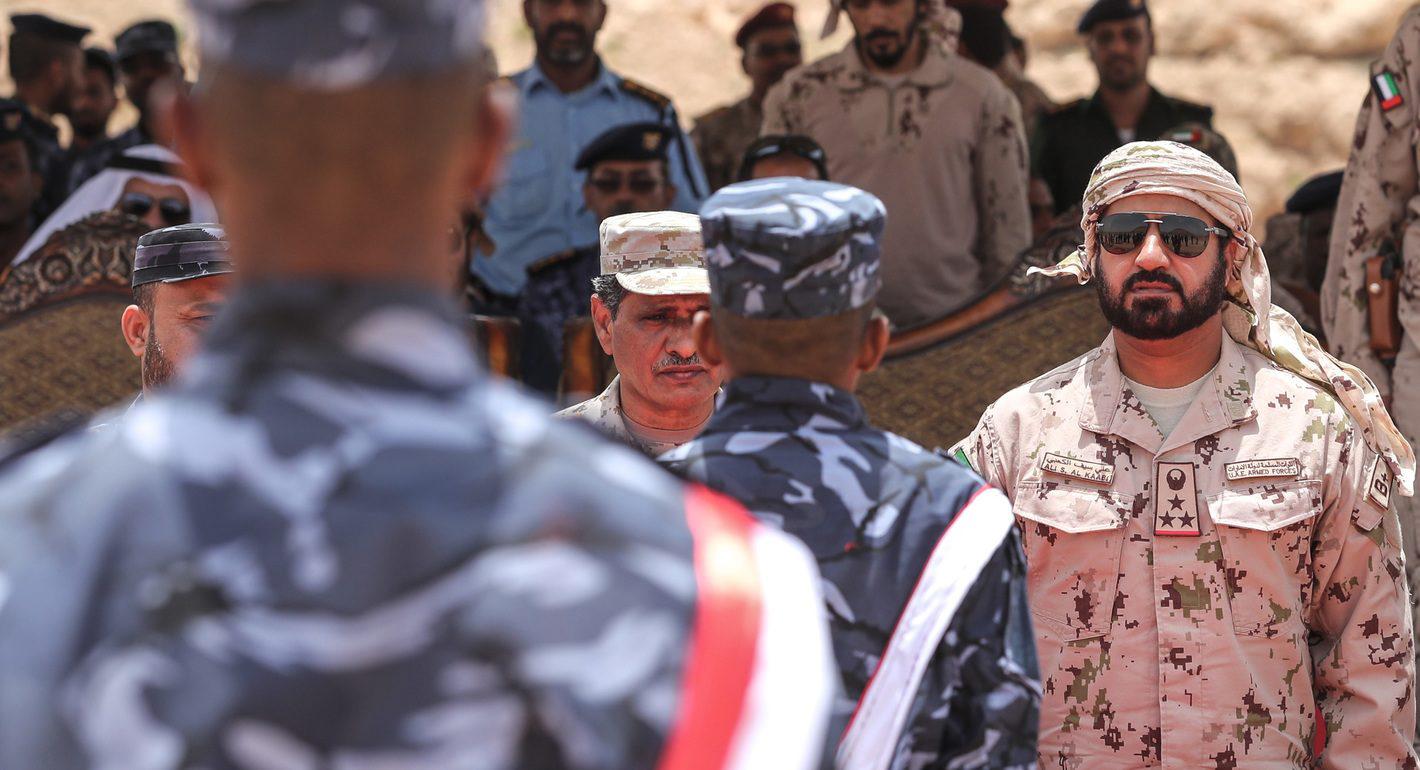In March, as Yemen’s Houthis continued to launch attacks in the Red Sea, the AP reported on the construction of an airstrip in Abd al-Kuri, a small island of the Socotra archipelago in Yemen. While no state confirmed responsibility for the airstrip, the most obvious candidate was the United Arab Emirates—which has relied on similarly undisclosed outposts over the past decade to further its military, security, and economic goals in the region.
Since the mid-2010s, the UAE has erected these facilities in eight countries: Yemen, Eritrea, Somaliland, Puntland, Somalia, Chad, Libya, and Egypt. Bases are built from scratch, expanded from existing installations, or temporarily used by the Emiratis in allied countries. This flexible model also reduces financial costs and has functional advantages in areas where non-state armed actors operate, including Yemen and many African states.
While the UAE has never confirmed the existence of these bases, they can be traced through independent media reports and satellite imagery, or sometimes inferred from UN documents. For the UAE, this degree of secrecy is needed to minimize negative political exposure—both among local populations, who may oppose the Emirati presence, and for the country’s international reputation, especially where outposts have served to support warring parties in conflict-torn countries.
Changes in UAE’s military bases abroad mirror the evolution of the Emirati foreign policy since 2011: the Emiratis are quick to relocate military assets when their regional priorities shift. In the aftermath of the Arab uprisings, especially from 2016 to 2019, outposts such as the Al-Jufra and Al-Khadim airbases and the Assab outpost provided decisive logistical support to UAE and allied forces in Libya and Yemen. When Emirati involvement in these wars ended, so too were the bases abandoned or transformed—as was the case in Berbera, Somaliland, where a planned military facility was converted into a civilian airport.
Now, the primary purpose of UAE military outposts is the protection of waterways, especially in the Red Sea and Western Indian Ocean region, whose security is threatened by Houthi attacks from Yemen, the return of Somali piracy, and the growth of al-Qaeda and Islamic State activity on the Eastern Africa coast. For the UAE, which has growing economic interests not only in Red Sea waterways but also in the Eastern Mediterranean and Africa, both economic and military interests require an effort to counter sources of instability. Thus since 2023, in addition to Abd Al-Kuri, the UAE has started to build bases in Kismayo, Somalia, and opened an airbase in Amdjarass at Chad’s border with Sudan.
The establishment of Emirati outposts is often preceded by military training and cooperation agreements with local forces. Since 2012, the UAE has trained Puntland Maritime Police Force to counter piracy, and opened a base in the port city of Bosaso in 2022. Similarly, prior to building outposts in Kismayo and Amdjarass, the UAE signed two security agreements with Somalia and Chad, which include military training for combatting terrorism. Yet as the UAE expands defense capacity-building, Emirati troops are more likely to be targeted; just this February, three Emirati soldiers were killed in Somalia by al-Shabaab militants at a training center in Moghadishu.
Beyond these security risks, the UAE’s outpost strategy has geopolitical implications. While Saudi Arabia and Qatar share some goals with the UAE, including maritime security and military training, Emirati military activism may contribute to ongoing power competition in the Arab Gulf. After 2011, both the UAE and Qatar sought to expand their sphere of influence throughout the Horn of Africa—a dynamic contained by the restoring of mutual diplomatic relations in 2021. But the recent defense and economic agreements between Türkiye—a close Qatari ally—and Somalia has already had consequences: the UAE suspended salary payments for several units of the Somali army, in reaction both to the agreement and to Al-Shabaab’s attack against its forces. And in Yemen, the UAE and Saudi Arabia have different areas of military influence—even in the same governorate with outposts managed by allied local forces.
Yet as the construction of the Abd Al-Kuri airbase suggests, the UAE shows no signs of abandoning its military outpost model. As the UAE maintains and expands its military role in Africa and the Red Sea region, it will have to balance its bold ambitions with its growing security responsibilities as a middle power.
Eleonora Ardemagni is a senior associate research fellow at the Italian Institute for International Political Studies (ISPI) and a teaching assistant at the Catholic University of Milan.






